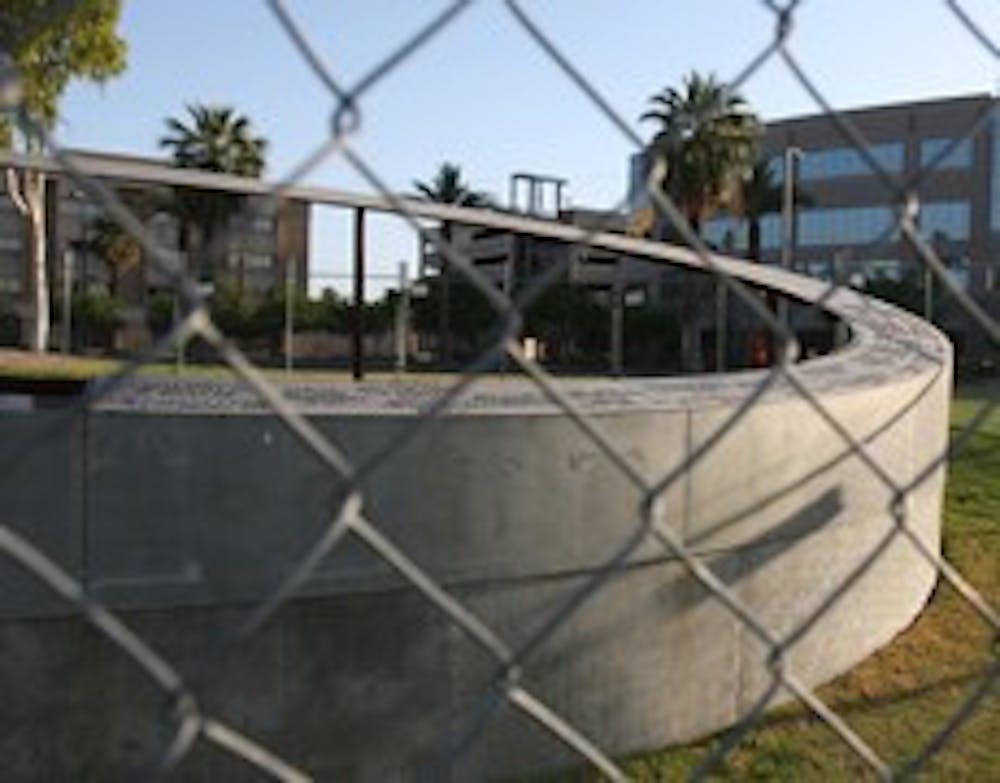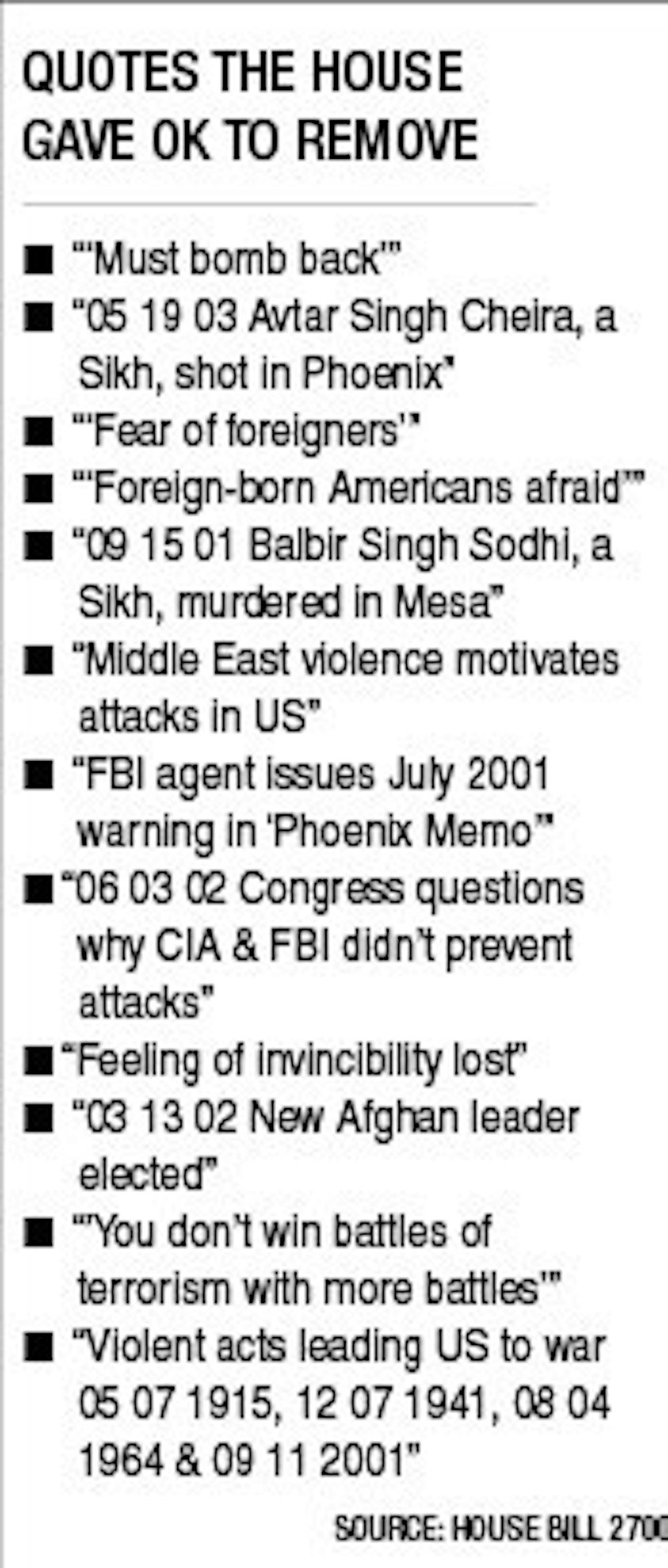Labeled by some as "egregious" and "insensitive," the Arizona 9/11 Memorial, an endeavor of ASU researchers, is the subject of a recently passed House bill calling for its alteration.
The memorial near the Arizona Capitol is comprised of a circular steel structure with inscribed quotes that, when hit by sunlight, are reflected onto the pavement below.
Since its 2006 construction, quotes such as "06 03 02 Congress questions why CIA & FBI didn't prevent attacks" and " 'You don't win battles of terrorism with more battles,' " have led to heated partisan debate.
House Bill 2700, which passed the House Wednesday and is now en route to the Senate, calls for the elimination of 12 quotes, which would be replaced by a timeline of the day's events on 9/11.
All of the memorial's 54 quotes came from research compiled by ASU history academic associate Nancy Dallett, history graduate student Patricia Roeser and history department chairman Noel Stowe.
The team gathered news clippings and conducted interviews with Valley residents, then filled three large binders with the excerpts from their research, said Matt Salenger, a designer from coLAB + Jones Studio Inc., which created the memorial.
The Arizona 9/11 Memorial Commission, the group in charge of planning the memorial, then approved which quotes would be included in the memorial.
Len Munsil, a 2006 gubernatorial candidate and early critic of the quotes, said he is not directly involved in any campaigns to change the memorial, but supports the bill.
"I opposed the memorial because the presence of anti-American, anti-military and anti-Israel rhetoric is not only offensive but inappropriate," said Munsil in an e-mail. "The memorial should unite Americans."
Salenger said the memorial was never meant to be offensive, but was instead intended to be a balanced, diverse representation of Arizona's reactions to the terrorist attacks on Sept. 11.
"It's a matter of just being inclusive to all the views and voices people had in Arizona following the attacks of 9/11," he said. "We wanted to capture the different ways that people reacted to the events."
Rather than remove 12 quotes, the Arizona 9/11 Memorial Commission has proposed striking only two quotes while adding six nonoffensive others, plus an introductory panel describing the intent of the memorial, Salenger said. Salenger said the quotes the commission recommends changing were about erroneous air strikes in Afghanistan and a terrorist leader addressing the American people — quotes not among the 12 that the House has approved removing.
An e-mail sent to the commission was not replied to by deadline.
He said all parties are acting too hurriedly and added that he does not think a change is necessary.
"These decisions to make these changes are overreacting," he said.
Inserting only an introductory panel would prepare visitors for the experience of the memorial, he added, without altering its original intended purpose.
"If [critics of the memorial] wouldn't be acting so quickly, they would realize that, really, the whole things should remain," he said.
Commission members and ASU researchers involved in the project were not available for comment. Roeser, the graduate student, declined to comment, and Dallett and Stowe did not respond to requests for comment.
Reach the reporter at: daniel.newhauser@asu.edu.





